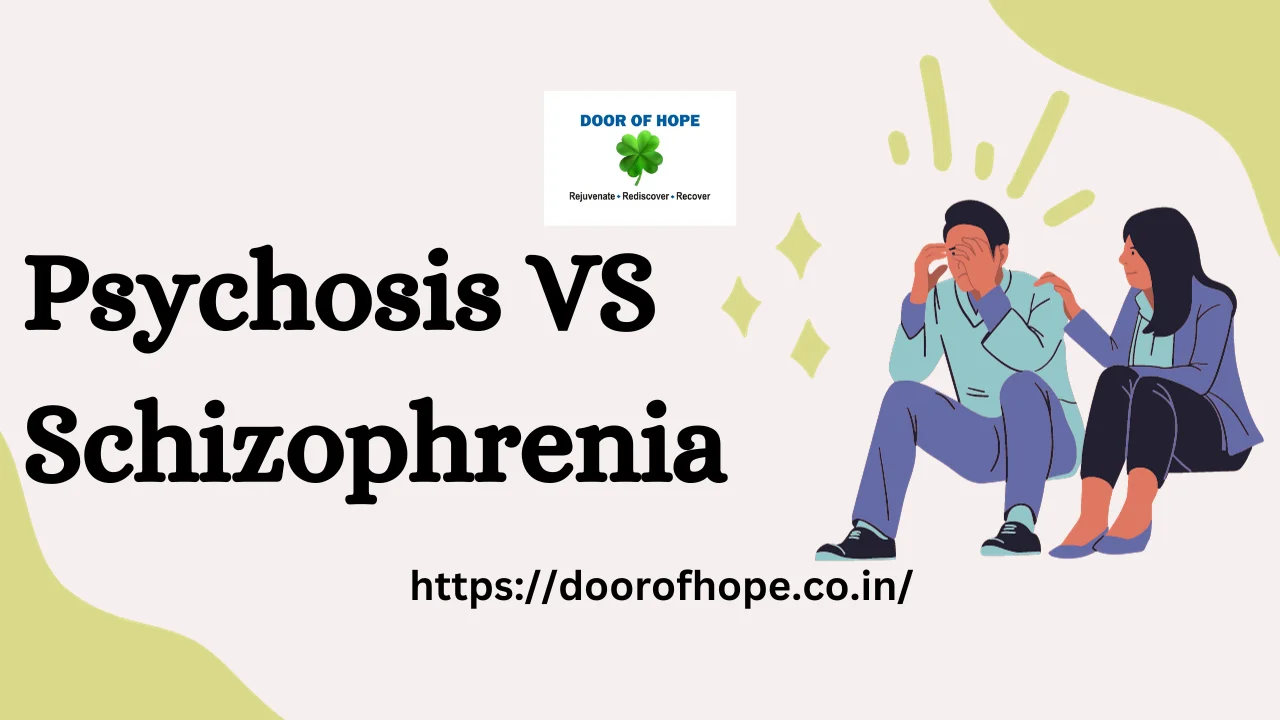Mental health is a topic that affects millions of people worldwide. Within this broad field, conditions like psychosis and Schizophrenia often generate confusion due to their similarities and differences. In this article, we'll explore these two mental health conditions in an easy-to-understand language, providing insights into their distinctions and commonalities.
By the end of this journey, we hope to shed light on these complex disorders and promote a better understanding of those who experience them.
Understanding Psychosis and Schizophrenia
What is Psychosis?
Psychosis is a mental state where individuals lose touch with reality. It can manifest as hallucinations, delusions, and impaired thinking.
Those experiencing psychosis may believe things that are not true or hear voices others can't. It's often a symptom of an underlying mental health condition, including schizophrenia, but can also occur in bipolar disorder, severe depression, or substance abuse.
Schizophrenia - A Complex Disorder
Schizophrenia is a specific mental health disorder characterized by a range of symptoms, with psychosis being one of the most prominent.
People with schizophrenia often experience hallucinations, delusions, disorganized thinking, and reduced emotional expression. Unlike psychosis, schizophrenia is a long-term condition, requiring ongoing treatment and support.
Common Ground and Key Differences
1. Shared Symptoms:
Both psychosis and schizophrenia share some common symptoms, with hallucinations and delusions being the most prominent.
In both cases, individuals may experience distortions of reality and have difficulty distinguishing between what is real and what is not.
2. Duration and Severity:
One key difference lies in the duration and severity of symptoms. Psychosis can be temporary and might be triggered by external factors like stress, substance abuse, or trauma.
In contrast, schizophrenia is a chronic condition, with symptoms persisting for at least six months and often requiring lifelong management.
3. Underlying Causes:
While psychosis can be a symptom of various mental health issues, schizophrenia is a distinct disorder with its own set of underlying causes.
Genetics, brain structure, and neurotransmitter imbalances are believed to contribute to the development of schizophrenia. On the other hand, psychosis is often a reaction to external stressors or other mental health conditions.
Diagnosis and Treatment
1. Diagnosing Psychosis and Schizophrenia
Diagnosing both psychosis and schizophrenia requires a comprehensive evaluation by mental health professionals.
They use criteria from the Diagnostic and Statistical Manual of Mental Disorders (DSM-5) to identify the specific condition and determine the best course of treatment.
2. Treatment Approaches:
Treatment for psychosis often involves addressing the underlying condition causing the symptoms. This may include therapy, medication, or lifestyle changes.
In contrast, schizophrenia typically requires long-term management, including antipsychotic medication, therapy, and support from mental health professionals, family, and friends.
3. Prognosis and Outlook:
The prognosis for individuals with psychosis varies depending on the underlying cause. Many people recover completely once the cause is treated.
For schizophrenia, the outlook can be more challenging, but with proper treatment and support, many individuals can lead fulfilling lives and manage their symptoms effectively.
Conclusion
In conclusion, understanding the differences between psychosis and schizophrenia is vital for promoting empathy and support for those affected by these conditions.
While they share some symptoms, their duration, underlying causes, and treatment approaches differ significantly. Both conditions can be managed effectively with the right support, whether through therapy, medication, or a combination of interventions.
By shedding light on these mental health conditions, we hope to reduce stigma, increase awareness, and contribute to a more compassionate and inclusive society for all individuals, regardless of their mental health challenges.


